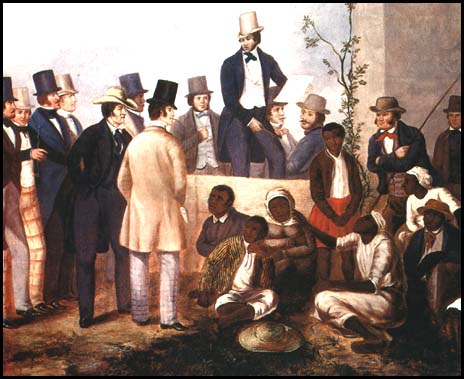Thirteenth Amendment (1865)

Section 1. Neither slavery nor involuntary servitude, except as a punishment for crime whereof the party shall have been duly convicted, shall exist within the United States, or any place subject to their jurisdiction.
Section 2. Congress shall have power to enforce this article by appropriate legislation.
On February 12, 1865. Rev. Henry Highland Garnet, a former slave, became the first black man to speak in the Capitol Building in Washington, D. C. by invitation of Republican leaders who felt the occasion that was soon to be merited a religious service. The Thirteenth Amendment was passed two days later. Below is part of Garnet's sermon titled "Let the Monster Perish."
slave, became the first black man to speak in the Capitol Building in Washington, D. C. by invitation of Republican leaders who felt the occasion that was soon to be merited a religious service. The Thirteenth Amendment was passed two days later. Below is part of Garnet's sermon titled "Let the Monster Perish."
Show us our Aaron, with his rod in flower! Our Miriam, with her timbrel-soul in tune! And call some Joshua, in the Spirit's power, To poise our sun of strength at point of noon! God of our fathers! over sand and sea, Still keep our struggling footsteps close to thee!
Then before us a path of prosperity will open, and upon us will descend the mercies and favors of God. Then shall the people of other countries, who are standing tiptoe on the shores of every ocean, earnestly looking to see the end of this amazing conflict, behold a Republic that is sufficiently strong to outlive the ruin and desolations of civil war, having the magnanimity to do justice to the poorest and weakest of her citizens. Thus shall we give to the world the form of a model Republic, founded on the principles of justice and humanity and Christianity, in which the burdens of war and the blessings of peace are equally borne and enjoyed by all.
Sources:
Rev. Henry Highland Garnet, A Memorial Discourse Delivered in the Hall of the House of Representatives, Washington, D.C. on Sabbath, February 12, 1865, with an Introduction by James McCune Smith (Philadelphia: Joseph M. Wilson, 1865), pp. 69-91.
